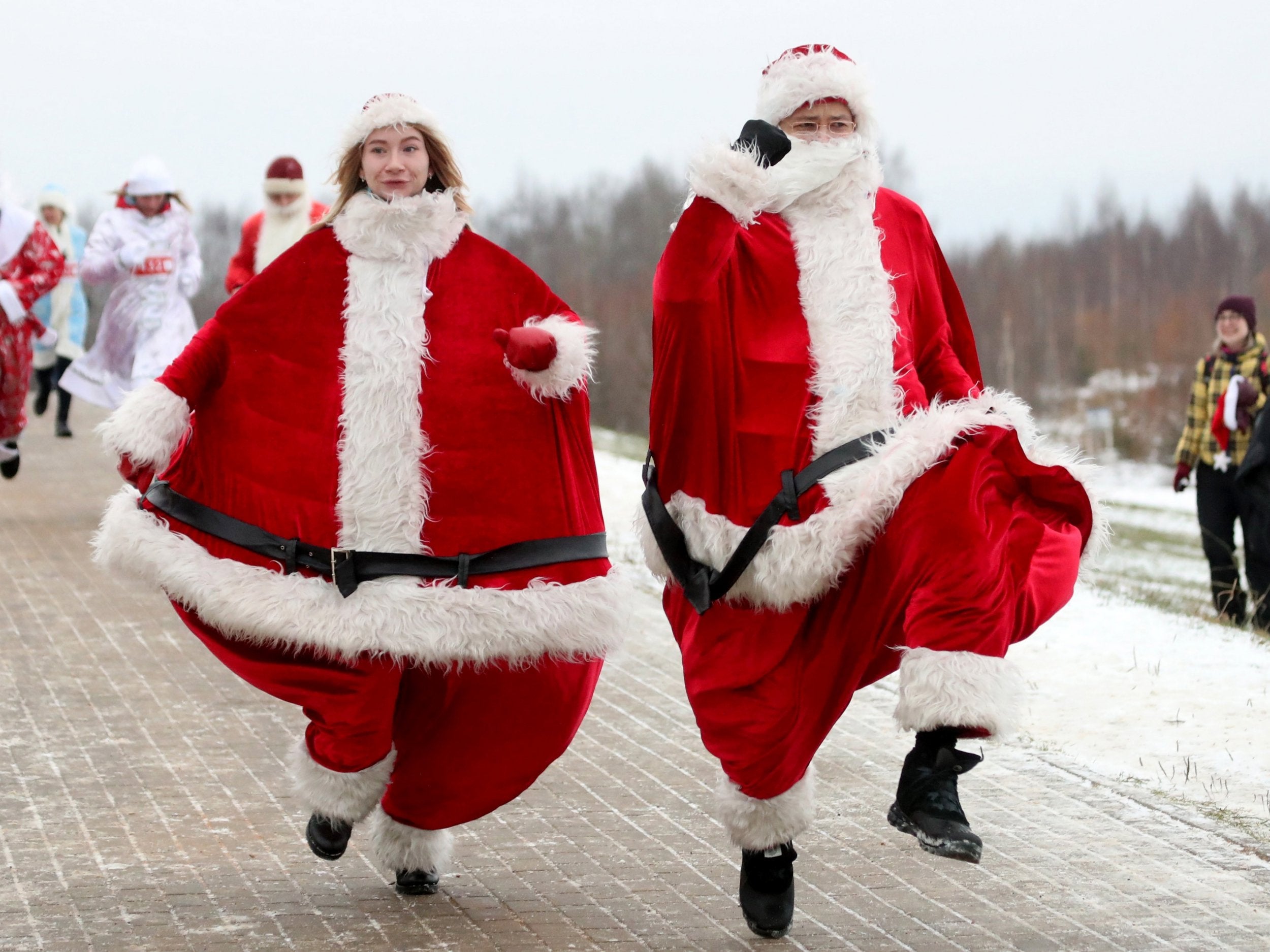Christmas leads to average Briton’s greenhouse gas emissions soaring by 23 times
December 25, 2024
Your support helps us to tell the story
From reproductive rights to climate change to Big Tech, The Independent is on the ground when the story is developing. Whether it’s investigating the financials of Elon Musk’s pro-Trump PAC or producing our latest documentary, ‘The A Word’, which shines a light on the American women fighting for reproductive rights, we know how important it is to parse out the facts from the messaging.
At such a critical moment in US history, we need reporters on the ground. Your donation allows us to keep sending journalists to speak to both sides of the story.
The Independent is trusted by Americans across the entire political spectrum. And unlike many other quality news outlets, we choose not to lock Americans out of our reporting and analysis with paywalls. We believe quality journalism should be available to everyone, paid for by those who can afford it.
Your support makes all the difference.
Christmas Day bonanzas of gift giving, festive feasts and wrapping paper cause the average Briton’s greenhouse gas emissions to spike by 23 times.
Emissions generated by each adult by all the travel, gifts, energy, decorations, food, drink and waste associated with the climax of the annual carnival of consumerism amount to 513kg of CO2 equivalent (CO2e), The Guardian reported. The average daily emissions of a UK adult are about 22kg CO2e.
The paper’s analysis lays bare the climate impact of Christmas festivities, celebrated by hundreds of millions of people in the wealthiest parts of the world. And the analysis gives ammunition to critics who have long argued the festive season has been hijacked by major corporations to promote mass consumption.

Melanie Nazareth from Christian Climate Action told the paper: “We have been deliberately sold a vision of Christmas that is based on material consumption. We are constantly bombarded by advertising and media that tells us that if we aren’t spending money on things, we are not doing Christmas properly. This is destroying the whole meaning of Christmas as well as destroying the planet.
“Christmas is a celebration of love and if we love people, if we care about the baby born today, the greatest gift we can give them is a livable planet.
“This is not just about our individual gift-giving, although we all have a responsibility to take action where we can. Retailers and manufacturers have the power to create change and they need to think beyond making bigger profits to think about their impact on the planet.”
The biggest contributor to the spike in emissions was gifts, accounting for more than 93 per cent, according to ClimatePartner, which conducted the research.
It said the average adult buying 20 gifts for family and friends would contribute a mammoth 479kg CO2e.

Electronics were the worst kind of gift by carbon emissions, with tech such as laptops and games consoles making up around half of each person’s gift-related emissions.
Asad Rehman, the director of War on Want, which campaigns on the climate and poverty, told The Guardian: “Rich corporations and their billionaire owners have once again gone big on Christmas advertising to push ordinary people into spending more than they or the planet can afford – transforming Christmas into a season of environmental excess.
“Corporate giants’ relentless drive for profit over planet or people is pushing millions of ordinary people struggling to feed their families and heat their homes into deeper debt and overconsumption of the planet’s resources.
“Yet the main culprits of excessive consumption are the top 1% – who have not only grabbed most of the world’s wealth, but whose carbon footprint is more than the poorest 50% of the world’s population. That is hurtling us towards climate catastrophe, whilst trashing the limited resources of our planet that are critical to protect our societies.”
Other Christmas activities pale in comparison to gift-giving, with travel for average Britons making up just 2.7 per cent of their Christmas day total, while decorations make up just 2.4 per cent.
ClimatePartner UK managing director Richard Hill said: “Whilst this is a time of celebration, gifting and abundance, this analysis gives us a better understanding of the impact Christmas has on our carbon footprint, which can be significant.
“The good news is there are now so many ways we can be more carbon-conscious such as buying preloved gifts, or buying a little less food to minimise waste. There is no reason we can’t be kind and generous to the planet as well as our loved ones this holiday season.”
Search
RECENT PRESS RELEASES
Related Post



